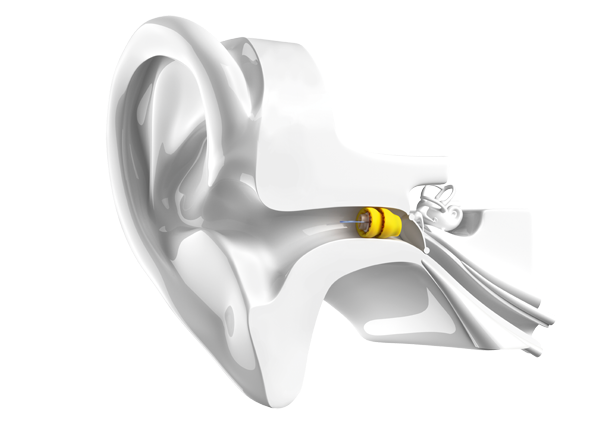One Veteran Helps Another Veteran Receive the Gift of Better Hearing
We recently had the opportunity to talk to retired Canadian Forces Lieutenant-General, Walter Semianiw.
He spoke with Hearing Solutions about an organization called Veteran Emergency Transition Services Canada (VETS Canada), hearing loss among soldiers in the military and his organization’s efforts to give our nation’s veterans a hand up. In one case, Walter and his team in Ottawa helped one vet in need of hearing aids.
You can listen to our interview with Walter Semianiw and read the transcript below.
Hello we’re here on the line with retired Lieutenant-General Walter Semianiw and he epitomizes what we at Hearing Solutions like to call ‘Hearing with a Heart.’
One of our staff members recognized him from a news story about VETS, the Veteran Emergency Transition Services organization. Walter, is a co-founder of the group’s Ottawa Chapter.
He had come in to our Billings Bridge Shopping Centre location with a Canadian Forces veteran he was helping to get new hearing aids. We’re happy that he has agreed to speak with us about VETS and this wonderful act of kindness.
Welcome Walter and thank you for taking the time to speak with me.
Walter tell us about VETS and how did you get involved and how did you make it a reality in Ottawa?
Walter Semianiw: Thank you very much for the question. So VETS Canada, Veteran Emergency Services Canada is a national not-for-profit organization with chapters across the country in all the major locations and in other cities and towns across Canada. And the focus of the organization is to help veterans in crisis. In particular, those who may find themselves homeless. Now remember homeless means not having a place to stay. They could be couch surfing or in a shelter and secondly veterans who may just find themselves in a crisis. They need a helping hand, not a handout, but a hand up. I retired from the military last year after 32 years of service, looked around, wanted to give back to those who had served. Looked at this organization and really appreciated the great work that it did and decided to join and then they asked if I would work with other folks to help establish the Ottawa chapter.
What kind of assistance does your team provide for veterans?
Walter Semianiw: Yeah, we provide a lot of assistance, but it’s very much determined by the veteran themselves. Be it either a food voucher we could provide in the winter time, boots, buy a coat, gloves, provide some interim accommodations. But in particular what we provide, is we provide a lead volunteer for each of the veterans and that lead volunteer works with that veteran through the issues, through the crisis to help that veteran in two ways. For one to find permanent accommodations and to provide permanent employment and when it comes to Hearing Solutions there’s another way that we did help was that one of our homeless veterans needed hearing aids. So, we went out and we found the money for those hearing aids and came to Hearing Solutions, which provided us with first class service and support to that veteran.
Wow, amazing! And how do you, you know, find these veterans or how do they find you, how can they find you?
Walter Semianiw: Yeah, we connect with veterans in three different ways. One, we actually go out on the streets the first Saturday of every month, we meet at a location downtown. Volunteers come together, we go out in teams. Now we do a couple of things. One we provide immediate support, be it bus tickets, Tims Cards, be it if it’s cold, gloves, a hat to anybody we see. Not just homeless veterans, but homeless people. Then we go into the shelters to see if we can find them. So, we go out and see if we can find them. Secondly, they might contact us, or thirdly, they might be referred to us, either through a shelter or they see our 1-800 number and give us call. Then we connect and provide that support.
Wow, that’s amazing. Now, as you mentioned, you’re an accomplished soldier. I was reading that you served as a commander in Afghanistan. What helped you cope over all those years and kept you from possibly being in the same position as some of the veterans you see?
Walter Semianiw: Yeah, that’s a great question. I think to start with most of your listeners would agree that everyone has gone through a difficult time throughout their life, as have I, and a key was when we do to find that someone was there. In my case I was part of the military, part of a big family that when we all go through difficulties, there’s someone there to help. When you do become a veteran, you’re no longer part of the “military.” So, you are looking for some way to get support and that’s where the veterans, as part of VETS Canada, came together and we continue that kind of support like a family support to reach out and help out veterans. So for me it was very much the support that I received when I was in the military and I want to give that back to those who need it as veterans.
Now this we kind of might or maybe touch on this, but some of the veterans that your team sees they, you know, they carry battle scars and you know some of those scars might set them on a path to addiction, homelessness, unemployment. What are some of those scars, seen or unseen, they may carry, whether they be physical, mental, or emotional?
Walter Semianiw: That’s a great question and first and foremost as you mention there are mental health issues that might be involved. As well as, perhaps physical issues, you know having been scarred, having perhaps lost a limb. And finally there are family issues where military life, at times, is hard on the family and the veteran may for whatever reason find themselves alone. So, we find you know veterans in those kind of cases, situations and then we reach out to help. We use access to all of the services across the city and in the federal and provincial government to get them either mental health support, physical support and even family support.
The gentlemen that you assisted and VETS assisted to get hearing aids, how does he like them? Have you gotten any feedback?
Walter Semianiw: Yeah I have. The minute they first…you know the experience at Hearing Solutions was a great experience. The staff was…I was there with that veteran and the staff was you know very polite, courteous, very helpful to the veteran and it was part of the conversation, so I didn’t hear it all but, they were very good, very informative. And the minute he put them on he found there was an immediate, an immediate change in the ability to hear, which is great for him, cause that means that you know he can actually hear better, but also it allows him that when he goes to work, you know from a health and safety point of view, it’s better and his quality of life is all that much better. So, he’s enjoying the hearing aids that he got at Hearing Solutions a lot.
Wow, that’s great to hear. We know that hearing loss is common among soldiers and veterans due to guns and heavy artillery, has this been your observation while you were serving and/or since establishing VETS?
Walter Semianiw: Yeah, you’ll find that from what I understand almost 40% of men and women in uniform who end up having to use Veterans Affairs Canada Services have hearing issues that need some type of hearing support. So, that’s a large part of the veteran population that needs that type of support given what we’ve gone through. You know loud noises, either if you’re in the air force working near airplanes, airplane engines. If you’re in the army working near tanks and this and that and guns or in the Navy working near engines and guns as well. So, it is an environment that has a hard, hard impact on hearing and yes we found there are a number of veterans who have hearing issues.
Before you left the military were there any initiatives or policies in place to help soldiers prevent or manage hearing loss?
Walter Semianiw: Yeah there are. First and foremost is that whenever they’re in that type of environment is to wear hearing aids [protection] and I think that’s fair. But, at the same time I think your listeners and readers need to understand you cannot always be wearing hearing aids [protection]. So, for example, when I was in Afghanistan I couldn’t be wearing hearing aids [protection] when I was out with men and women as part of that rotation, cause I wouldn’t be able to hear anything. Hearing is so important, it’s another sense to be able to detect to see if there’s something about to happen, something about to go wrong. So, there are some cases where you just cannot wear hearing protection and the noise is going to be above you know a safe noise level for your ears. But that’s all part what we do and which is why we have Veterans Affairs Canada there to be able to support veterans who may have hearing issues and need hearing support.
Now, in the recent news report that we saw, VETS in Ottawa had already helped 10 former soldiers find housing. How does that make you feel and how do you feel in general about the work that VETS is doing for Ottawa?
Walter Semianiw: It’s kind of a two part feeling. One, you feel very sad that there are veterans that find themselves in these tragic situations. On the other hand, we’re happy that we can help. We’ve had actually veterans who we’ve helped from the shelters, brought them into interim accommodations, provided them with peer support and they moved on to find permanent accommodations, and in some cases employment. So, you know that part of it is really rewarding and gratifying, but it is very tragic and sad to see that there are veterans on the street who need that type of help.
Well that does it for all our questions today and we want to thank you again for taking your time to speak with us and also thank you for your service to this nation.
Walter Semianiw: And thank you very much for speaking with us and again we want to thank Hearing Solutions. The support that got at Hearing Solutions with our veteran was simply outstanding and thanks to Hearing Solutions and the team there.
Thanks so much.








